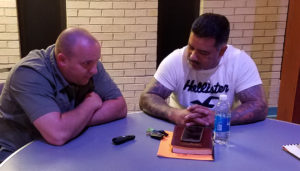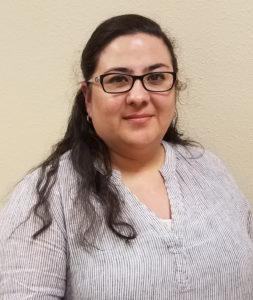En Español aqui.
DALLAS—A Dallas Baptist Association training center seeks to meet a critical need in Hispanic churches by equipping laity for service and leadership.
Six out of 10 Hispanic Texas Baptist pastors lack formal theological education, noted Gilberto Santiago, director of the association’s Seminario Teologico Bautista de Dallas. Dallas-area Baptists created the training institute about 80 years ago to address that need and provide biblical and theological training for pastors.
However, when pastors eventually move on to other congregations, finding another trained minister can be difficult—particularly for a small-membership Spanish-speaking congregation.
Often, a dedicated layperson from the congregation may step up to fill the void.
But when untrained lay leaders seek to lead untrained congregations, members seldom grow in Christian discipleship, and churches struggle to survive.
Prepare leaders according to their gifts

Last year, Santiago led the Dallas-based training center to refocus its mission on the whole church rather than exclusively on pastors.
“Now our goal is to prepare leaders according to their gifts,” he said.
Santiago sees no shortage of willing workers in Hispanic congregations. However, members need to be equipped for service.
Sign up for our weekly edition and get all our headlines in your inbox on Thursdays
“Because the church did not educate them, people did not have the opportunity to prepare, though they wanted to serve,” he said.
Seminario Teologico Bautista de Dallas offers its program in two levels. The first level includes six courses in general basic training. The second level also offers six courses, but it allows students to concentrate in one of six areas—pastoral ministry, youth ministry, Christian education, worship, evangelism or missions.
Students can complete both levels in two years. To accommodate schedules, Santiago seeks to use varied locations around the greater Dallas area for groups to meet once a week in the evening.
‘Done by faith’
“Everything has been done by faith,” he said. DBA provides some funds for class materials and instructors, but the budget does not cover the costs of securing locations and advertising courses. Still the program has been able to grow.
“Many churches have offered their buildings for the classes,” Santiago said. “And it is always our students who invite others to come and take the course.”
Last year, 22 students attended classes in two cities. This year, about 140 students are enrolled in the classes offered in five locations.
“The worst thing people in the church can do is to think they do not need theological training,” said Santiago. “Maybe there are several things you can stop doing in the church, but one of them cannot be to stop learning.”
From his own experience, Santiago relates well to students who might have had well-meaning mentors, but who may have been taught more about traditions than biblical principles.
Most students face the same challenges to complete their training—time and money. But Santiago insists students end up seeing the program as a valued investment.
“They realize there is a big difference between reading the Bible and actually studying it,” he said.
Pass it on

Samuel and Feli Nuñez have attended training institute classes at Lake Pointe Church’s Richland campus in Richardson. Now they are using what they learn as they minister to other families.
“That is the ministry we have been called to do—ministry with families,” Samuel Nuñez said. “These courses give you more knowledge, so you can give a superior lesson to others.”
Their investment in education yields fruit in multiplied fashion, Feli Nuñez added. As she and her husband learn more, they pass it along to the families they work with, so they can teach others, in turn.

Training institute classes also promote personal spiritual growth, Aida Ortiz noted.
“We learn concepts that we could not spend the time to study during the sermons,” Ortiz said.
Santiago hopes the program one day will grow to reach more people around the Dallas area and influence other denominations, as well.
“Our program is for the local church, and for whatever its need might be,” Santiago said, noting instruction is customized to meet congregational needs. “That is the difference between Cinderella’s glass slipper and a tailor who customizes a suit for a specific person.”















We seek to connect God’s story and God’s people around the world. To learn more about God’s story, click here.
Send comments and feedback to Eric Black, our editor. For comments to be published, please specify “letter to the editor.” Maximum length for publication is 300 words.